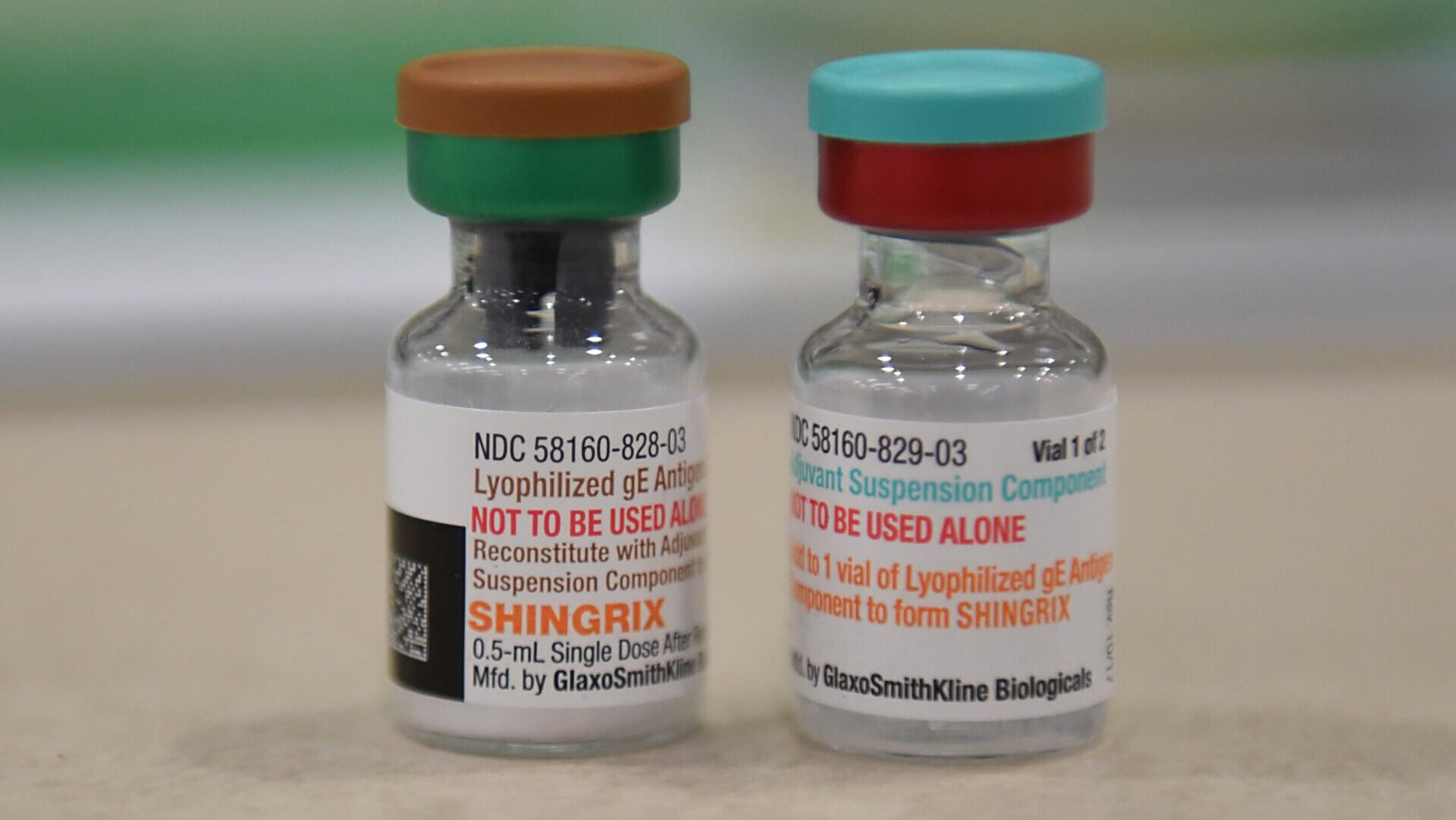Vaccines that help prevent the devastating disease shingles could also offer a boon against cognitive decline. In a new study published Thursday, scientists have found that the latest shingles vaccine, Shingrex, is associated with a lower risk of dementia. More research will be needed to confirm a cause-and-effect relationship, however, and to better understand how this effect may be happening.
Shingles is caused by the varicella zoster virus, the same germ that causes chickenpox in children and younger adults. Chickenpox is usually a short-lasting but uncomfortable illness, but the virus manages to avoid destruction from our body’s defenses by laying dormant in our nervous system. Decades later, the virus can remerge and trigger a new bout of infection that we call shingles (roughly one-third of chickenpox cases will eventually develop shingles). Shingles is often a horrific experience to go through, causing agonizing pain, skin rashes, and flu-like symptoms for up to five weeks. Some people will also develop lingering nerve pain that can take months or even years to go away, while an unlucky few can experience multiple episodes of shingles.
Thankfully, there’s been a vaccine for shingles available since 2006, Zostavax. Zostavax has since been supplanted by the Shingrix vaccine (first approved in 2017), which appears to be even more effective at preventing shingles, providing upwards of 90% protection for at least seven years. Shingrix is also a recombinant vaccine, which uses parts of a target germ to illicit immunity, whereas Zostavax uses a weakened version of the whole virus; this means that Shingrix is safe to use in immunocompromised people. Since 2020, only Shingrix has been available for use in the U.S., recommended for most everyone over the age of 50.
A way to stave off dementia?
There have been several studies over the years pointing to a possible reduction in dementia risk from the Zostavax vaccine, but relatively little research has looked at Shingrix so far. This new study from scientists in the UK, published in the journal Nature Medicine, aimed to do just that.
The researchers examined health records from over 200,000 people in the U.S. vaccinated for shingles, half of whom were given Shingrix. They found that people given Shingrix were 17% less likely to develop dementia over a six-year-span than people given the older Zostavax vaccine. They were also less likely to develop dementia than people given two other common vaccines used in older people, the flu, and combination tetanus/diphtheria/pertussis vaccines (these groups served as a sort of control). Even in people who did develop dementia, the researchers estimated that Shingrix vaccination was associated with roughly a six month delay in symptoms compared to Zostavax.
These kinds of studies alone can’t be used to prove that the Shingrix vaccine can prevent or slow down dementia. And there’s still the question of how this protection is happening if it is genuine. Some research has suggested that certain germs, including herpesviruses like varicella zoster, can trigger dementia directly, for instance, though this connection also still hasn’t been confirmed just yet. At the very least, the scientists say their work should motivate more definitive research looking into this link.
“These findings should stimulate studies investigating the mechanisms underpinning the protection and could facilitate the design of a large-scale randomized control trial to confirm the possible additional benefit of the recombinant shingles vaccine,” they wrote in their paper.
#Shingles #Vaccine #Offers #Hope #Dementia,
#Shingles #Vaccine #Offers #Hope #Dementia
